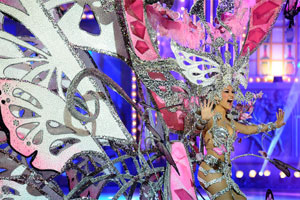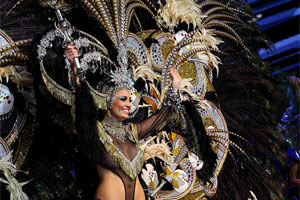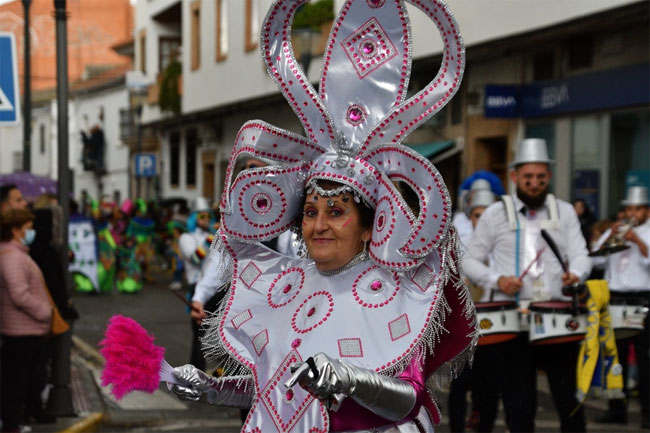Holy Week in Lorca
Holy Week in Lorca is known for being one of the most spectacular in Spain, both for its artistic richness and its popular roots. Every year, thousands of visitors come to this Murcian city to enjoy its processional parades, which have a great tradition and careful staging.
What will surprise you about Holy Week in Lorca?
One of the most surprising aspects of Holy Week in Lorca is the procession of "los blancos", which takes place on Maundy Thursday. In this parade, the penitents wear white tunics and hoods instead of the traditional purple or black, giving them a very unique and characteristic look. In addition, this procession stands out for the large amount of incense used, creating a very special atmosphere.
Another element that makes Holy Week in Lorca unique is the so-called "dressed sculptures", which are religious images dressed in authentic period costumes. These sculptures are true works of art, not only created with great skill, but also with attention to detail in the making of the clothes and accessories they wear.
Holy Week in Lorca is one of the most outstanding in Spain, and its artistic and emotional display is a unique experience for those who have the opportunity to witness it. Declared of International Tourist Interest since 2007, which demonstrates its recognition and value as one of the most important religious and cultural celebrations in Spain and the world.
What will surprise you about Holy Week in Lorca?
One of the most surprising aspects of Holy Week in Lorca is the "los blancos" parade, which takes place on Maundy Thursday. In this parade, penitents wear white tunics and hoods instead of the traditional purple or black, giving them a very unique and characteristic appearance. Additionally, this parade stands out for the large amount of incense that is used, creating a very special atmosphere.
Another element that makes Holy Week in Lorca unique are the so-called "dressed carvings," which are religious images dressed in authentic period costumes. These carvings are true works of art, not only because they are crafted with great skill, but also because the clothing and accessories they wear are carefully made to the smallest detail.
Holy Week in Lorca is one of the most prominent in Spain, and its artistic and emotional display is a unique experience for those who have the opportunity to witness it. Declared of International Tourist Interest since 2007, this demonstrates its recognition and value as one of the most important religious and cultural celebrations in Spain and the world.
Processions of the Holy Week in Lorca
The Holy Week in Lorca features a total of 10 processions, each with its own unique style and characteristics. The processions are held from Palm Sunday to Easter Sunday and attract thousands of visitors every year.
Among the most outstanding processions are:
Palm Sunday procession
This procession marks the beginning of the Holy Week in Lorca and is composed of the Brotherhood of Our Father Jesus in his Triumphant Entry into Jerusalem and Mary Most Holy of Peace. The penitents parade carrying palms and olive branches, while the image of Jesus riding a donkey is carried in procession.
Maundy Thursday procession
The most important procession of the Holy Week in Lorca, in which the 7 brotherhoods of the city participate. The procession begins at the Church of San Francisco and goes through the historic center of the city. The thrones of Our Father Jesus the Nazarene and Mary Most Holy of Bitterness, which are carried on the shoulders of the bearers, stand out.
Good Friday procession
This procession is known as "The Paso" and represents the moment of the death of Jesus on the cross. The thrones of Our Father Jesus of Blood and Our Lady of Solitude, which are carried by the bearers, stand out.
Easter Sunday procession
The procession that closes the Holy Week in Lorca, in which the brotherhoods of the Resurrection and the Holy Supper participate. The image of the Risen Jesus, which is carried in procession by the penitents, stands out.
The processions of the Holy Week in Lorca are a true spectacle for the senses and represent one of the most deeply-rooted traditions of the city. If you have the opportunity to visit Lorca during the Holy Week, do not miss the chance to witness at least one of these processions.
Origin and History of the Holy Week in Lorca
The Holy Week in Lorca has its origins in the 15th century, although it is from the 18th century onwards when it begins to take on the form that we know today. During this time, the different brotherhoods and fraternities began to parade in procession through the streets of the city, representing the scenes of the Passion, Death, and Resurrection of Jesus Christ.
Throughout the centuries, the Holy Week in Lorca has evolved and grown, becoming one of the most important events in the city. Currently, it has a total of 10 processions, each with its own history and tradition.
During the Spanish Civil War, the processions of the Holy Week in Lorca were suspended, and many of the images and steps were destroyed. However, after the war, the city was committed to the reconstruction of its Holy Week, and thanks to the effort of the different brotherhoods and fraternities, the processions returned to the streets of Lorca in 1942.
Since then, the Holy Week in Lorca has continued to grow and evolve, becoming one of the most prominent events in the city. Every year, thousands of visitors come to Lorca to witness these impressive processions, which represent one of the most deeply rooted and emotional traditions of the city.
Interesting places to visit in Lorca and its surroundings
Castle of Lorca: a medieval fortress located on top of a hill that offers stunning views of the city. Inside the castle, you will also find the Visitor Center, where you can learn about the history of the fortress and the city.
- Municipal Archaeological Museum of Lorca: in this museum, you can see an interesting collection of archaeological objects and artifacts from different periods and cultures, from prehistory to the Roman era.
- Guevara Palace: an impressive 18th-century palace built by the Guevara family. Nowadays, the building houses the Paso Azul Embroidery Museum.
- San Patricio Church: an 18th-century Baroque church considered one of the most outstanding monuments in the city. Its facade, tower, and impressive altarpiece stand out.
- Lorca Taller del Tiempo: a space that combines history, culture, and technology, allowing you to learn about the evolution of Lorca through the centuries.
In the surroundings of Lorca, you will also find interesting places to visit, such as the Sierra Espuña Regional Park, a protected natural area that offers a variety of hiking trails and routes, and the town of Águilas, with its beaches and historical and cultural heritage.
These are just some examples, there are many other places worth visiting in the city of Lorca and its surroundings!
Popular cuisine of Lorca
The cuisine of Lorca is a blend of influences from Murcian, Andalusian, and Castilian cuisine, and boasts a great variety of local dishes and products. Some of the most popular dishes of Lorca's cuisine are:
- Olla de la era: a traditional stew of Murcian cuisine, made with chickpeas, potatoes, rice, pork meat, and chorizo.
- Migas: another typical dish of Murcian cuisine, made with bread, olive oil, garlic, and red pepper.
Rice with rabbit and snails: a very popular dish in the region of Murcia, made with rice, rabbit, snails, and various spices. - Caldero: a typical seafood dish from the Cartagena area, made with rice, fish, broth, and various spices.
- Ensalada murciana: a fresh and tasty salad, made with tomato, onion, green pepper, boiled egg, tuna, and olives.
In addition to these dishes, Lorca's cuisine features other high-quality local products, such as sausages, olive oil, wine, and typical sweets like paparajotes, borrachuelos, or sweet turnovers.
Lorca's cuisine is another example of the cultural and culinary richness of the region of Murcia, and a delight for food lovers.




